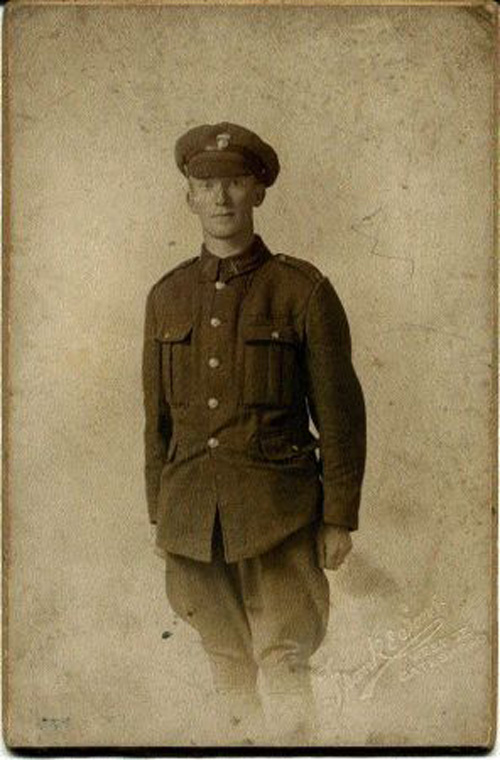A Private Soldier
For my father, Private 19/926 Fred Hartley 19th BN Northumberland Fusiliers
Volunteered Nov 1915 – Discharged Feb 1919
 Fred Harley, World War 1Did he win medals? No,
Fred Harley, World War 1Did he win medals? No,
Nor rose to higher rank.
He went with Kitchener
Without a reason why,
Just knowing it was right
To go with all his pals
To march and cheer and fight,
To fight, perhaps to die.
Only when death came near,
So close that he could smell
The mix of cordite, blood,
White rotting flesh and fear
Did he begin to ask:
“What are we doing here?
Can this do any good?
Who got us in this hell?”
He found no answers there
But he survived and lived
To question and to care
About society
And the ideals that rose
Again from Flanders mud:
The rights of common men,
The power of brotherhood.
On Tyneside he began
To fight the workers’ cause,
Raising a union
To help the working man
Achieve some of the aims
They brought home from the war:
Class-free society
And justice for the poor.
Did he win medals? No,
Nor accept campaign gongs.
I think he rose above
All military show.
He won respect and love
From all who knew him well
And he won gratitude
For fighting social wrongs.
He was a quiet man,
Strong, steady, sensible.
He was a man to trust
Who stood by those in need,
A man of principle,
A fighter for the just.
I think he was, indeed,
A very private soldier.
On 11th July, ten days after uncle Jack Roberts was killed at La Boiselle, Fred Hartley was digging communication trenches through the 1st July battlefield to the new front line a few hundred yards further forward. One of the officers recorded in the Battalion Diaries that “The dead looked like a battalion lined up on the parade ground.” One is left to wonder how close Fred was to Jack’s unburied body that day.
